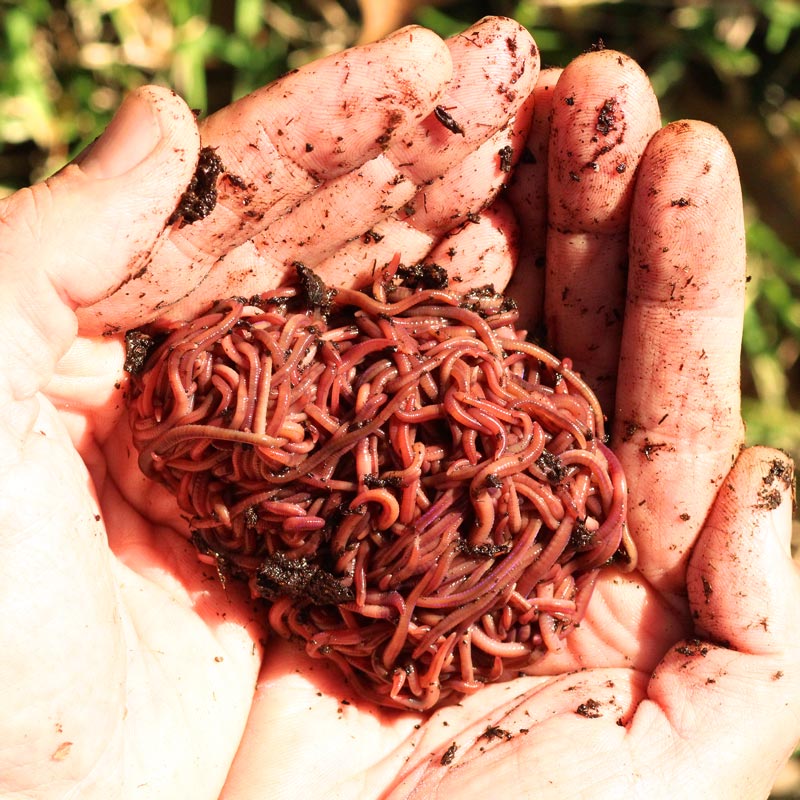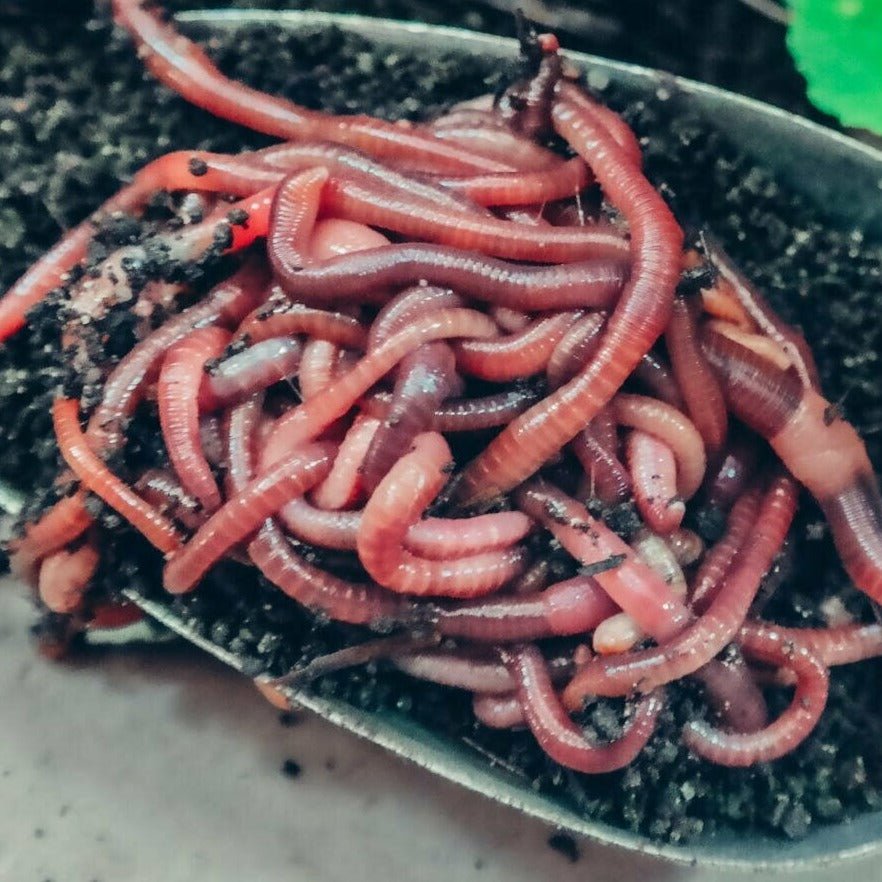Red Wiggler Worms for Sale - Lasting Waste Administration Solution
Red Wiggler Worms for Sale - Lasting Waste Administration Solution
Blog Article
Red Wiggler Worms Demystified: Opening the Tricks of Vermiculture for Greener Living and Nutrient-Rich Soil
In the world of sustainable practices for enriching dirt high quality and promoting eco-conscious living, red wiggler worms play a crucial yet frequently overlooked duty. These simple creatures have the exceptional capacity to transform organic waste right into nutrient-rich castings that offer as a potent all-natural fertilizer. By diving right into the world of vermiculture, one can uncover a huge selection of benefits that prolong much beyond conventional composting methods. Understanding the complexities of looking after these worms, enhancing their setting, and using their castings can cause a greener lifestyle and much healthier soil for plants to prosper.
The Function of Red Wiggler Worms
Red Wiggler worms play an essential duty in composting systems by effectively breaking down raw material into nutrient-rich castings. These voracious eaters take in a selection of organic materials, such as kitchen area scraps, backyard waste, and paper items. As they feed, the worms' digestive system processes break down the natural issue into a fine, dark, and nutrient-dense product called worm castings or vermicompost.
The castings created by Red Wiggler worms are very useful for dirt health and wellness and plant development. They are rich in crucial nutrients like nitrogen, phosphorus, and potassium, which are important for supporting healthy and balanced plant growth. Additionally, worm spreadings include useful microorganisms and enzymes that aid boost soil structure, rise water retention, and boost nutrient uptake by plants.
Advantages of Vermicomposting

In addition, vermicompost, the nutrient-rich final product of vermicomposting, functions as an exceptional natural fertilizer and soil conditioner. It enhances dirt structure, boosts soil oygenation, and increases soil wetness retention. These properties add to healthier plants with stronger origin systems and much better resistance to bugs and illness. Vermicompost likewise enriches the soil with essential nutrients like phosphorus, nitrogen, and potassium, promoting plant growth and total dirt fertility.
Furthermore, vermicomposting supports lasting horticulture techniques by providing a chemical-free and natural option to synthetic plant foods. Red Wiggler Worms. This environmentally friendly method not only enhances the soil but likewise helps in reducing dependence on hazardous chemicals, promoting a greener and much more lasting method of horticulture
Establishing a Worm Container
When developing a worm bin for vermicomposting, correct arrangement is essential to make sure the success of the composting process. The very first step in setting up a worm bin is choosing an appropriate container. This can be a plastic bin or wooden box that gives adequate room for the worms to move and has appropriate drain holes to avoid waterlogging. Next, a bedding material such as shredded newspaper, cardboard, or coconut coir should be included in the container. This bed linen supplies a comfy setting for the worms and helps maintain dampness levels.
After including the bed linens, introduce the red wiggler worms to the container. The worms should after that be offered with food scraps such as fruit and veggie peels, coffee premises, and eggshells.
Regularly check the wetness degrees and temperature in the worm container to ensure optimum conditions for the worms. With appropriate setup and upkeep, the worm container will efficiently transform natural waste into nutrient-rich garden compost for your plants and yard.
Harvesting Worm Spreadings
To efficiently Find Out More gather nutrient-rich worm castings from your vermicomposting system, an organized harvesting method is crucial. There are a few essential steps to comply with to make certain an effective procedure when it comes time to harvest the worm castings. To start with, stop including fresh food scraps to one side of the worm container for a number of weeks prior to harvesting. This encourages the worms to move sideways with fresh bed linen and food, making it less complicated to scoop out the castings from the opposite.

Troubleshooting Common Issues
Recognizing and resolving typical challenges that might arise throughout the vermicomposting process is vital for maintaining a healthy and balanced and efficient worm container. Adding excess food scraps can lead to an accumulation of dampness and acidity in the worm bin, potentially damaging the worms. Another problem is undesirable odors rising from the worm bin.
In addition, if the worm population is declining or the worms show up unhealthy, maybe as a result of environmental stress factors such as extreme temperature levels or pH levels. Monitoring these aspects and making required adjustments is crucial for the well-being of the worms. By fixing these usual issues immediately, vermicomposters can make certain a smooth and successful vermicomposting procedure while keeping a prospering worm populace.

Final Thought
In final thought, red wiggler worms play a vital function in vermiculture by breaking down organic issue right into nutrient-rich dirt. Establishing up a worm bin is essential for effective vermiculture, and gathering worm castings provides beneficial garden compost for horticulture.
As they feed, the worms' gastrointestinal processes damage down the organic issue into a penalty, dark, and nutrient-dense material understood as worm spreadings or vermicompost.
The castings produced by Red Wiggler worms are very helpful hints helpful for soil wellness and plant growth. Including excess food scraps can lead to a build-up of moisture and acidity in the worm container, potentially damaging the worms.Furthermore, if the worm populace is declining or the worms show up harmful, it could be due to ecological stress factors such as extreme temperature levels or pH levels. Establishing up a worm bin is essential for effective vermiculture, and collecting worm castings provides useful compost for horticulture.
Report this page